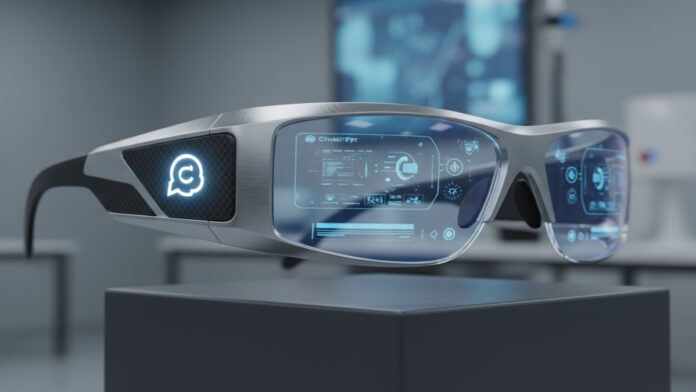OpenAI could be gearing up to enter the world of AI-powered glasses, with new reports suggesting the company is exploring making “ChatGPT glasses” among several other hardware forms. This news comes despite OpenAI CEO Sam Altman’s rejecting the idea of glasses as part of their first wave of devices.
Back in July, Altman was spotted wearing white sunglasses with chunky frames outside the Sun Valley Conference that had sparked speculation. When asked by reporters if they were smart glasses, he quickly shot down the idea: “No, absolutely not, I don’t like smart glasses.”
But behind the scenes, things may be shifting. In May 2025, OpenAI officially stepped into hardware by acquiring io Products, the start-up co-founded by former famed Apple designer Jony Ive, in a deal worth about USD 6.5 billion, as well as partnering with Ive’s design studio LoveFrom.
At the time of the deal, The Wall Street Journal reported that Altman had told staff the company’s first device would be a pocket-sized, screen-free, contextually aware device — and not a phone, glasses, or any other “wearable” form factor.
However, according to a new report from The Information, OpenAI has reportedly been stealing design and supply chain talent from Apple to build “a whole line” of consumer devices. Alongside its pocket-sized device, the company is working on a smart speaker, and said to have “considered” (not confirmed) making glasses, a digital voice recorder, and even a wearable pin.
Still, don’t expect anything soon. OpenAI’s first hardware products aren’t expected until late 2026 or 2027, which means glasses, even if they are made, are not anticipated until later in that window (or possibly beyond).
The Bottom Line
After years of focusing on software, OpenAI is now making a decisive push into hardware. Despite CEO Altman’s public dismissal of smart glasses, the latest reports suggest that the company is keeping its options open. With Meta, Google, and Apple already racing ahead in wearables, OpenAI faces the risk of arriving late to a market that may soon shape the way people experience AI.

